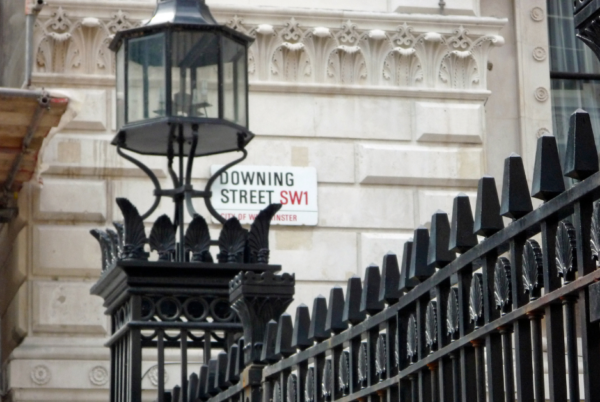With the Labour Party now in government many people will be wondering what impact this may have on their finances. The new government will make decisions that affect everyday life, from the promises made during the election to the laws introduced in the King’s Speech.
Let’s explore the key financial areas that are likely to be influenced by Labour’s policies and the impact this may have on your wallet.
Taxes
 The advent of any new government has the potential to bring significant changes to taxation. The good news here is that during their election campaign, Labour ruled out any immediate increases in income tax, National Insurance or VAT. For the majority of people, this provides some stability; with the knowledge that any tax increases won’t hit take-home pay. This allows you to plan and budget with more certainty.
The advent of any new government has the potential to bring significant changes to taxation. The good news here is that during their election campaign, Labour ruled out any immediate increases in income tax, National Insurance or VAT. For the majority of people, this provides some stability; with the knowledge that any tax increases won’t hit take-home pay. This allows you to plan and budget with more certainty.
Although there are no hikes to income tax expected, the new Labour Chancellor, Rachel Reeves, has said the income tax threshold, frozen by the Conservatives at £12,570, will remain unchanged. This means that anyone earning over this amount must pay income tax. With wages increasing over time to keep up with rising costs, more will earn over this threshold and therefore be required to pay tax. The freeze was introduced in the 2021/22 tax year and is set to remain in place until 2028.
Childcare costs
Childcare costs can be a significant burden on families and Labour has committed to providing support to ease this cost.
Labour has announced its support of the expansion of free childcare to all children under five, as previously announced by the Conservative Party.
Further plans outlined in this area include the expansion of childcare by repurposing unused school classrooms into nurseries. Labour has also promised to fund free breakfast clubs for every child in every primary school.
Taking all these measures into account, there is hope that the new government will make childcare more accessible and affordable for families. This has the potential to reduce costs and allow more parents to enter or return to the workplace.
Wages

One of the big commitments the new government has made which could directly impact your pocket is to further increase the minimum wage, making it a ‘genuine living wage’.
Currently, the national living wage applies to over 21s and is £11.44. The minimum wage that applies to under 21s is £8.60.
Living Wage Foundation, which campaigns for a fairer living wage, has calculated a ‘genuine living wage’ based on the cost of living. This came in at £12 for 2023-24, rising to £13.15 for those living in London.
If Labour implements a genuine living wage using these figures, over 21s earning the minimum wage outside London could be better off by 56p an hour. Those in London would be better off by £1.71 an hour.
Furthermore, if Labour removes age bands and expands the higher living wage to all those over 18, as they have promised to do, under 21s outside London would see a minimum wage rise of £3.40 an hour. In London, this would mean an increase of £4.55 an hour.
These changes would represent a significant increase to take-home pay for those on the minimum wage. As with any increase to the minimum wage, there are also positive knock-on effects for those throughout the pay scale. This could mean increases to wages for large numbers of workers throughout the UK.
Housing
 Owning property can provide financial security and stability and it’s for this reason that the new Chancellor has pledged to make property more affordable for more people.
Owning property can provide financial security and stability and it’s for this reason that the new Chancellor has pledged to make property more affordable for more people.
To help more people get on the property ladder, Labour has vowed to reform planning rules, enabling the construction of 1.5 million new homes and increase access to affordable housing.
However, Labour plans to reverse the stamp duty threshold increase, which had meant that Stamp Duty Land Tax only applied to first time house purchases over £425,000.
From April 2025, the threshold will come back down to £300,000, meaning increased costs when buying a home.
For those in private rented property, Labour’s plans include the immediate abolition of Section 21. A section 21 notice gives landlords the ability to end an assured shorthold tenancy without providing a reason or ground for possession. By removing this right, those in rented property should have greater security.
They also state that they will give tenants the ability to challenge unreasonable rent increases.
Energy costs
One of the most significant household costs over recent years has been energy bills. To combat the rising cost of energy, Labour has said it will work with the energy regulator, Ofgem, to cut bills by reducing standing charges.
The new government has promised to make Britain a ‘clean energy superpower’. In doing so, it hopes to reduce household energy bills by up to £1,400 a year. However, this is likely to be a long-term process, meaning there is unlikely to be any significant reduction for the time being.
Long-term planning
Labour has committed to keep the state pension triple lock, which ensures that pension entitlement increases each year in line with either inflation, wages, or by 2.5% – whichever is greater. This provides some security to those approaching retirement as they can be sure that the state pension will keep pace with any rises in the cost of living.
Labour’s impact on your financial future
The new Labour government’s policies have the potential to impact everyday finances, particularly those on lower incomes. For those wrestling with everyday costs, there is positive news – particularly when it comes to help with childcare costs and wages. For other commitments, such as improving access to housing, it will take much longer for any changes to trickle through.
It’s important to stay updated and watch these changes closely to make smart decisions and manage your finances well.
Follow us on Facebook and Instagram to keep updated on the latest financial news.

